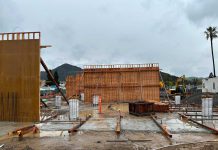By Susan Kirsch
The California Legislature’s decision to suspend work until May 4 due to the coronavirus pandemic was a wise move. Some want to take it a step further, urging that all non-essential legislation be postponed until 30 days after the statewide “shelter in place” order has been lifted.
To consider non-essential legislation without opportunity for public hearings violates the Brown Act, writes Bob Silvestri, president of Community Venture Partners in Mill Valley. And, he says more new housing bills do not qualify as essential legislation.
Some might disagree. State Sen. Scott Wiener, D-San Francisco; the Bay Area Council and the building, developer and corporate real estate investment industries might like to quickly pass housing legislation.
Efforts to promote would-be affordable housing by eliminating communities’ right to maintain single-family neighborhoods could move forward more quickly without public scrutiny.
Plans for high-density housing near transit might go unchallenged despite what we’re learning about the dangers of density and the COVID-19 pandemic.
In response, I propose a 2020 moratorium on introducing all new housing legislation, except measures to provide funding. This wouldn’t be a building moratorium. Approved projects would proceed. The moratorium would give pause so that we may awaken to new possibilities on how to solve the housing dilemma based on collaboration, trust, problem solving and tools of technology. Why is this important?
For years, builders and legislators have clamored about a housing crisis. COVID-19 shows us what a real crisis looks like. Healthy people get sick and die. Businesses close. Foreclosures and bankruptcies surge.
The coronavirus exposes the fallacy of the YIMBY-marketed housing crisis. Research by the Embarcadero Institute validates this claim. We don’t need 3.5 million housing units by 2025; it’s more like 1.2 million.
Housing bills like Wiener’s Senate Bill 50 slam the door on local decision-making to benefit constituents and throw open the door to real estate investors who prioritize profits. Economist Michael Storper calls this dangerous trend the financialization of housing.
A moratorium on new housing bills would give legislators and local officials time to collaborate in defining the problem. Michael Goldman, Sunnyvale City Council member, writes in his blog, “If we don’t clearly define the problem, builders will have us dancing to their tune forever as they holler ‘housing crisis’ over and over.”
A moratorium on new housing bills creates opportunities for legislators to learn about solutions from elected officials on the front line. For example, Palo Alto is addressing the jobs/housing imbalance.
A moratorium allows time to improve the broken legislative process. For example, in 2019, legislators passed three bills related to Accessory Dwelling Units that would allow additional living quarters on the lot of a primary dwelling. Now in 2020, a fourth bill is needed to correct inconsistencies.
The COVID-19 pandemic demands legislators’ action. The housing dilemma does not. One outcome of a housing moratorium is a Values & Policy Framework for 2021. It would lay a foundation for an integrated, comprehensive housing strategy with human values that unite us, prioritized over the economic factors that divide.
Now Is the time. Declare a moratorium on new housing legislation.
Susan Kirsch, president of Kirsch Associates, is a community organizer and founder of Livable California. She wrote this column for calmatters.org.








